This blog post is part of a series — Making Change Every Day — sharing reflections written by Common Ground’s class of 2016 as part of their senior leadership portfolios. Learn more about this series and the portfolio process.
During the first semester of my Junior year, the Civics class I took with Mr. Kelahan provided an excellent opportunity show respect towards others. We were assigned a project which demonstrated how the government is divided into branches, how they work and influence each other in the process of law making. For this project, we were assigned to groups and in our groups, we had to come up with a proposal. The objective was first to get the approval of the majority of people in our civics class, and subsequently the student body and staff. The bill had to propose a solution to a problem we see at Common Ground. With this in mind, we proposed to strengthen the School Wide Support system. We had to go around the class and acquire the signatures of more than half the students, which became increasingly difficult. This was because one of the project parameters was that if a single person disagrees with one aspect of our proposal, we had to go back, change it, and start all over again (just like in congress). Although the entire process was very difficult, we were eventually able to get our proposal approved and it currently lives in the form of an email that is sent to all of the students, asking them about the class they need help with during School Wide Support.
The hardest part of the project, which turned out to be the most rewarding, was trying to get the students in my group to contribute to its success. Before this project, I strongly disliked working in groups, as I saw it as only slowing me down. This group project helped me realize how wrong and arrogant I had been. While trying to complete this project, I tried to take control over all aspects of it. At first, I gave orders and demanded things, because I believed that they weren’t capable enough. I thought they were the problem, but I came to realize that it was I who was the problem. After reflecting on my actions one evening, I purged myself of those arrogant thoughts that prevented the existence of a team, working together to accomplish a shared goal. The next day, I aimed to include everyone. I asked the people in my group how they felt about our proposal, since it was me who came up the idea. I wanted to see if it was what they truly wanted to do. They all said yes, so I asked if there were things they would change about the proposal. They all had suggestions that made the proposal far better than it would have been had I not decided to ask. We worked together to incorporate those suggestions into the proposal. One person worked on the language, which was crucial, as it had to be as clear and precise as possible. Another person worked on looking for the best methods of carrying out our proposal while another worked on identifying weaknesses. When I saw that someone was struggling in something, instead of taking total control, I asked questions and made suggestions which helped them with their part of the assignment. I realized that they were very capable and very intelligent people, but the problem was that at first, I wasn’t giving them a chance to show just how capable they were. This project helped me see the value of their ideas and the importance of including people, who might otherwise never be listened to. We are all leaders, but it is only through inclusion that we can see the true capabilities of a person.
A true leader is someone who works together with others rather than impose his or her views on them. A true leader guides others rather than commands others. He or she seeks to bring out the best in people rather than ignore their abilities. All of these are things I have learned as a result of this project. I do not know what my future is going to be like, but what I do know is that I want to become a powerful, understanding, inspirational and effective leader. Being inclusive and working with others is the way to accomplish this goal.
Furthermore, as a result of this project, we were able to impact the academic lives of the students at Common Ground. This project gave a voice to every student, allowing students to choose the classes they feel they need the most support in. Before this, students weren’t asked about what classes they struggled the most in and therefore needed the most support in, they were simply assigned to a support class. As a result, some got support for a class they were doing just fine in and lacked the necessary support for the most challenging classes. This project aimed to address this discrepancy. It empowered students to assume control and responsibility of their academic experience. This helped students improve their skills in the classes they struggled the most in, and thus improved their academic performance in those classes. Consequently, students didn’t fall behind in their studies and had more time to focus on other things such as extracurricular activities, since doing poorly in their classes wasn’t as big of a worry as before. My hope is that the work we did can serve as a model for future student involvement at Common Ground. Allowing students to take charge and ownership of their education is a crucial aspect of an ideal academic environment, which is why student voice should be deeply ingrained in Common Ground’s decision-making process.
 About the Author: “I come from a place in Costa Rica, where the education system, unfortunately, has low expectations for its students, a place where few students show pride for their work and for their school. I too showed very little pride for my work, as I felt that the whole system didn’t truly believe in us, in our potential. When I came to Common Ground, all of this changed. I was surprised to see a school that truly understands its students, that truly cares about the lives of its students, a school that believes in its students, and leaves no student behind. In my sophomore year, I had a class called English 10 which mainly focused on the idea of sense of place. This class not only taught me how to be a better writer, it taught me to appreciate what I have. What was interesting and especially important about this class is that it didn’t just focus on writing skills, it focused on giving students an identity, and on making us better leaders. I cherish Common Ground because unlike any other school I have been in, Common Ground didn’t only focus on the prescribed curriculum, but also on making me a better student, better person, better leader.”
About the Author: “I come from a place in Costa Rica, where the education system, unfortunately, has low expectations for its students, a place where few students show pride for their work and for their school. I too showed very little pride for my work, as I felt that the whole system didn’t truly believe in us, in our potential. When I came to Common Ground, all of this changed. I was surprised to see a school that truly understands its students, that truly cares about the lives of its students, a school that believes in its students, and leaves no student behind. In my sophomore year, I had a class called English 10 which mainly focused on the idea of sense of place. This class not only taught me how to be a better writer, it taught me to appreciate what I have. What was interesting and especially important about this class is that it didn’t just focus on writing skills, it focused on giving students an identity, and on making us better leaders. I cherish Common Ground because unlike any other school I have been in, Common Ground didn’t only focus on the prescribed curriculum, but also on making me a better student, better person, better leader.”

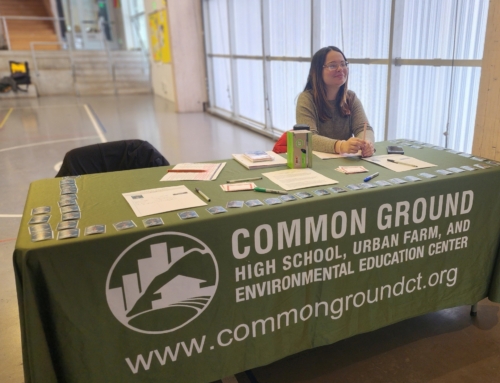
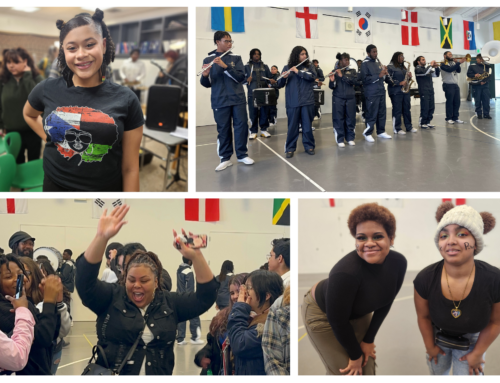
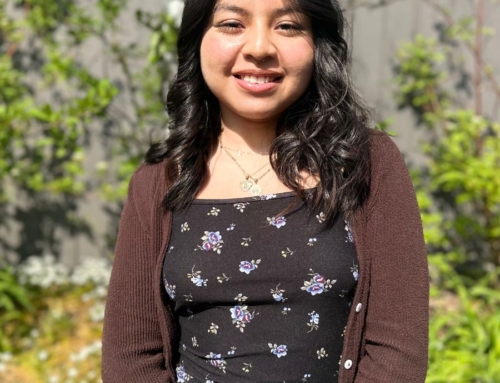
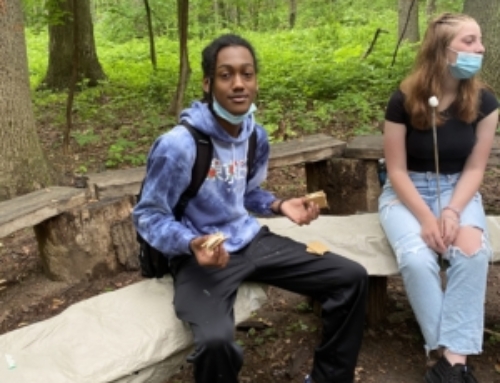
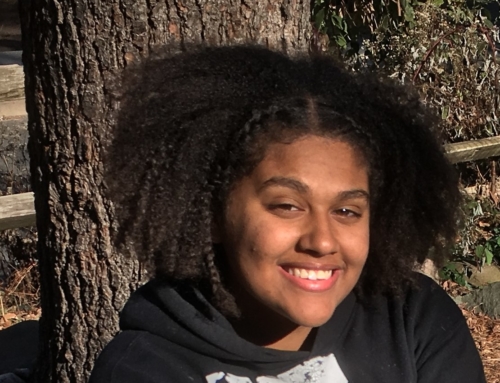
Leave A Comment